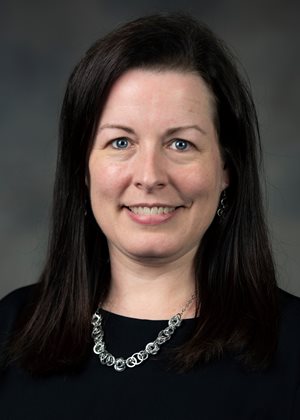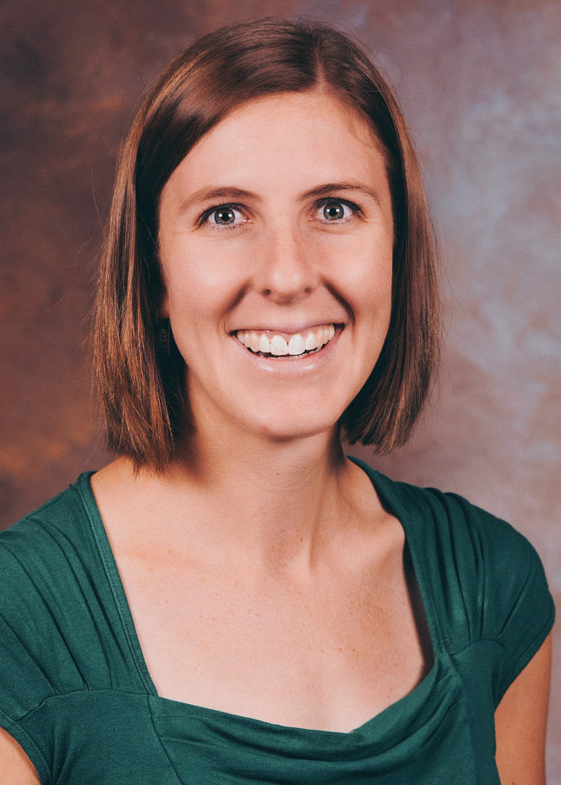
Allegheny alumnae Amy Overman and Katherine Mickley Steinmetz share several bonds when it comes to mentoring undergraduate students.
Overman graduated from Allegheny in 1999 and Steinmetz in 2006. Each shared a mentor while studying neuroscience at Allegheny, each conducted electroencephalogram (EEG) studies for her senior comprehensive project, and each was awarded the Neuroscience Faculty Prize that is presented annually to a student or students who write the best senior project in neuroscience.
Steinmetz is now an associate professor of psychology at Wofford College in South Carolina, and Overman is a professor of psychology and assistant dean of the College of Arts & Sciences at Elon University in North Carolina.
However, the two didn’t know each other until recently. That’s despite everything in common they shared at Allegheny, plus several professional overlaps including both working as neuroscientists and professors teaching the same subject and mentoring undergraduate students for colleges in the South.

Their friendship finally was established last fall when Overman happened to conduct an external review of Steinmetz’s department at Wofford.
“In the course of reviewing her material, I saw Allegheny and said ‘Wow! What are the chances of that?’” Overman said.
Their professional similarities continued, unbeknownst to either, with each separately submitting articles to a special issue on mentoring undergraduates that was published February in the scientific journal Frontiers in Psychology. Articles in the journal focused on the research topic “Engaging Undergraduates in Publishable Research: Best Practices.”
The article Steinmetz published, titled “Providing Outstanding Undergraduate Research Experiences and Sustainable Faculty Development in Load,” discusses how conducting research in one’s field and allowing undergraduates to engage in this research can deeply enrich the experience of both professors and students.
Overman’s article, titled “Strategies for Group-Level Mentoring of Undergraduates: Creating a Laboratory Environment That Supports Publications and Funding,” describes several strategies for mentoring groups/cohorts of undergraduate researchers to increase student sense of belonging and motivation while simultaneously enhancing research productivity.
Both Overman and Steinmetz credit the mentoring they received while undergraduate students at Allegheny and how it was a vital component to shape their studies and career paths. Each considers the opportunity to now mentor undergraduate students conducting research at their respective schools to be an important part of their professional career.
“My experiences at Allegheny were so influential for me and I thought, ‘I want to be the person who passes along the knowledge and does the mentoring,” Overman said.
Added Steinmetz: “I had professors that worked with me very deeply to explore the subject I was interested in. That really inspired me to do research for my career. I knew I liked teaching and working with people.”
Overman has taught at Elon University for the past 12 years, and she is pleased with the outcomes some of the students she has mentored have achieved.
“Four of my students have finished their Ph.D., five have entered their Ph.D., and there are three people who are in med school,” she said. “I have seen these awesome outcomes for students I have mentored. I didn’t know mentoring existed before I went to Allegheny.”
She believes there is a scholarly heritage that Allegheny professors create by mentoring undergraduates who then go on to mentor other undergraduates. Many of her students are now doing just that and creating new branches of the Allegheny “mentoring tree.”
Steinmetz, who has been with Wofford for seven years, understands how rare it is to do research with undergraduates that is of such high quality that it can be published.
“For students who want research to be their career, it’s a huge leg up to get into graduate school especially to have that research in your career,” Steinmetz said. “And when we’re able to present it or publish it, it really helps get them into graduate school. For those who don’t, I think it helps them get critical-thinking skills and problem-solving skills and reasoning skills that you don’t always see in the classroom.”